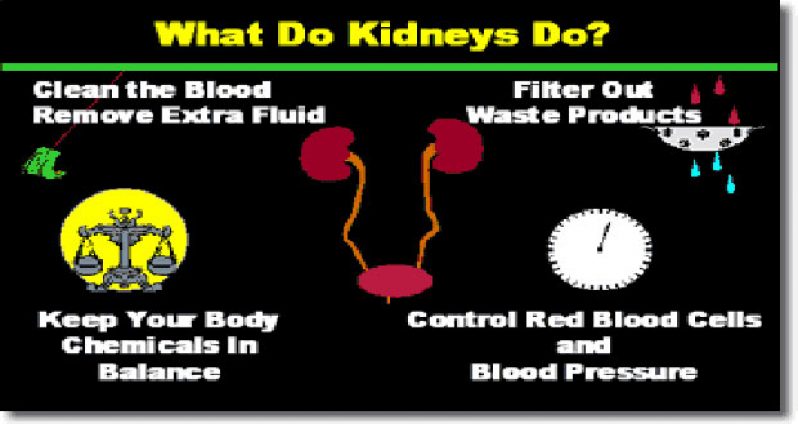THE life of a 6-year-old boy was on Wednesday last suddenly ended after renal failure.
The death of Mark Anthony Inniss of Strathspey, East Coast Demerara, has come amidst mounting concerns over what appears to be a steady increase recently in the prevalence of kidney-related deaths locally.
But pathetically, the child whose condition was detected last December, was being treated at a private hospital and it was not until all hope there had been lost, that he was taken to the Georgetown Public Hospital Corporation (GPHC) – about three weeks ago. By then it was no longer just Chronic Kidney Disease (CKD), but his condition had advanced to end-stage renal disease (ESRD).
According to the National Health Service (NHS) U.K: “The average age of a British person with the disease is 77. In the UK, health authorities report that people of South Asian, African and Afro-Caribbean descent are at a higher risk of developing the disease, compared to other people.”
But whether the local prevalence be nine or ninety, every kidney-related death is one too many, in our context, and Guyanese who mourn the loss of loved ones and friends to renal failure, and all who share in the desire for optimal health, are calling for this development to be made a national health emergency.
‘JUNK FOOD’ TRAP
This is particularly so given that over time there has been a drastic shift in local lifestyle patterns and eating habits – tending towards a worrying upsurge in the use of ‘junk foods’.
Such foods are laden with sodium, refined sugars, high carbs and trans fats and are known to fuel the development of diabetes, hypertension and kidney-related illnesses.
In the meantime, there is a marked inadequacy of existing health promotion and education strategies, as admitted in the “2013-2020 Strategic Plan: NCD Prevention and Control.”
“Chronic kidney failure, also known as chronic renal failure, chronic renal disease, or chronic kidney disease, is a slow progressive loss of kidney function over a period of several years. Eventually the patient has permanent kidney failure. Chronic kidney failure is much more common than people realise, and often goes undetected and undiagnosed until the disease is well advanced and kidney failure is fairly imminent. It is not unusual for people to realise they have chronic kidney failure only when their kidney function is down to 25% of normal,” according to the MNT website.
Chronic Kidney Disease (CKD) in children is a progressive and intractable condition that may severely impair the child’s growth, development and quality of life. And since it is important to detect CKD as early as possible, screening should be done early, and professional treatment commence soonest. If left untreated, Pediatric CKD eventually progresses into End Stage Renal Disease (ESRD). So time is of the essence here.
The function of the kidneys is to purify or filter a person’s blood, ridding it of waste, excess salt and toxins. Therefore, when the kidneys can no longer carry out this function,
the patient is much more susceptible to fluid build-up and this results in swelling or puffiness.
LATE SYMPTOMS
However, children with chronic kidney failure may not have any symptoms until about 80% of their kidney function is lost. At this stage, they may feel tired, have flu-like symptoms, nausea or vomiting, or experience mental confusion. They may have difficulty concentrating and poor performance at school.
Other common symptoms for children include:
* Swelling of the hands and feet and/or puffiness around the eyes caused by excess fluid build-up.
* High blood pressure accompanied by headaches
* Lack of or decrease in appetite
* Decreased or increased frequency of urination and sometimes bed-wetting at nights
* Changes in the color of the urine such as being unusually dark or red, which can indicate the presence of blood
* The urine may appear extra foamy, an indication of the presence of protein
* Their growth may appear stunted as compared to similar age group peers
Parents need to be ever watchful and vigilant, since children will not always take notice of these developments or potential issues and may not always report them to parents.
As soon as a child starts displaying a combination of any of the above-listed symptoms, take him/her to the doctor right away. Your doctor will screen and place him/her on medication.
And your best bet would be to take your child to the GPHC which has very qualified and experienced doctors in the field, the required resources and the superior treatment modalities used in routine practice.
Once the condition of a person having CKD has progressed to End Stage Renal Disease, it means that the kidneys would have failed and can no longer carry out its filtering functions. The next step would be for the patient to be put on dialysis until such time as it is possible for him/her to have a kidney transplant.
DIALYSIS
Haemodialysis is the filtering or purifying of the blood outside the body through a machine, since the kidney which performs that function is no longer capable of doing it. The process entails removing all of the person’s blood from his body by tubes (catheter), then passing it through an artificial kidney and back to the body.
COSTLY
Dialysis sessions can be protracted, as long as three to four hours. It could also be very costly in the long term, especially since dialysis may need to be done as often as thrice per week and can only be discontinued after a kidney transplantation is done. The prevailing cost of dialysis in Guyana is between $9,000 to $15,000 per session.
Limiting fluids between dialysis treatments is very important, because most people on dialysis urinate very little. Without urination, fluid will build up in the body and cause too much fluid in the heart, lungs, and ankles. And usually when the fluid builds up around the lungs, it results in death.
By Shirley Thomasw




.png)









